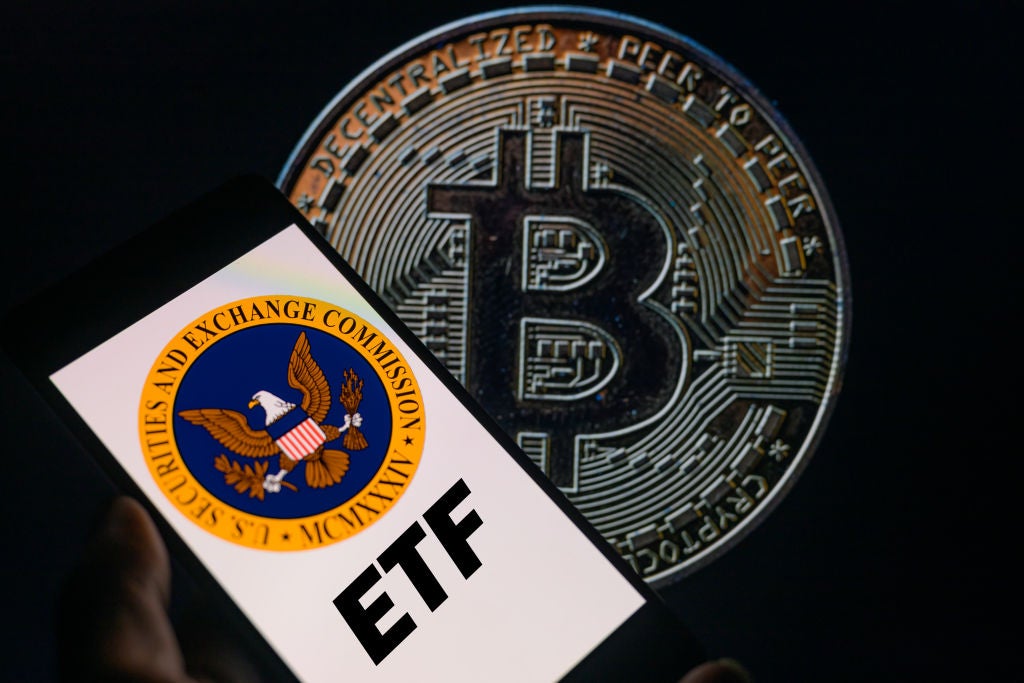
The US Securities and Exchange Commission (SEC) approved the first US-listed exchange traded funds (ETFs) to track bitcoin, marking a major milestone for the crypto industry.
The announcement has been met with celebration from crypto enthusiasts who say the approval shows that the establishment is taking the industry seriously.

Access deeper industry intelligence
Experience unmatched clarity with a single platform that combines unique data, AI, and human expertise.
ETFs are portfolios that allow investors to bet on multiple assets which reduces financial risk and exposure.
The approval means a brand new group of investors will enter the crypto space. The industry expects billions of dollars to stream into the market.
According to the SEC on Wednesday (10 January), it approved 11 applications, all of which are expected to start trading today (11 January).
Major investment companies, including Fidelity and Blackrock, have been waiting for the SEC to give them the go-ahead to start buying Bitcoin for their own ETFs.

US Tariffs are shifting - will you react or anticipate?
Don’t let policy changes catch you off guard. Stay proactive with real-time data and expert analysis.
By GlobalDataMichael Walsh, CEO of Ireland and head of distribution at Zodia Markets, told Verdict: “The SEC’s approval for BTC ETFs in the US is unambiguously good news for investors and asset managers.
“A highly regulated BTC ETF market democratises ownership of BTC; buyers of the ETF in any increment have the comfort of knowing that their assets are in the safe hands of household investment managers with simplified access and liquidity,” Walsh added.
The landmark decision has also been met with some criticism by those in the industry that feel it disregards the ethos of crypto.
Some claim that the industry is about rejecting traditional financial systems for something more people-focused and decentralised.
SEC approval comes one day after hack
The news comes just a day after the SEC official X account posted a fake announcement that the regulator had approved the products for trading.
The social media account was hacked by an unauthorised party and the post was deleted 30 minutes after publishing.
On Wednesday the SEC said it was investigating the incident with its own internal watchdog and working with law officials.
Elon Musk’s social media platform said that the SEC did not have two-factor security enabled at the time of the hack.
David Bicknell, principle analyst at GlobalData, told Verdict that it will be a long year of cyberattacks if an attack “is then compounded by a blame game over whether two-factor authentication was enabled.”
“Such a comment that says, ‘It wasn’t us, it was you,’ really helps no-one except the attackers, who will willingly exploit any such divide,” Bicknell said, “less carping and more collaboration would be a smarter approach.”







